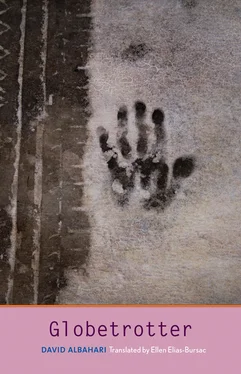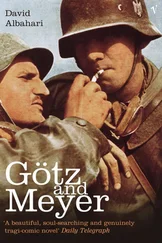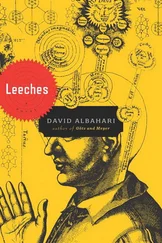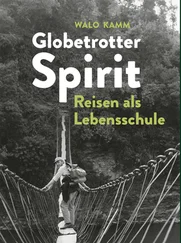In June of 2011, I arrived in Banff. My project at a three-week translation residency was to translate Albahari’s Globetrotter into English. The Banff International Literary Translation Centre invited the author to attend as well, so David Albahari joined us there for five days. Although he and I have been working together for twenty-five years, we have been in the same room only a few times.
Together we went to the Museum of Natural History and looked at the stuffed owls, the lynx, the grizzly. Together we went into town from the Centre, walking by the cemetery, and roamed the streets, which really do have animal names like Badger, Otter, Wolf, Bear, Buffalo, Grizzly, Rabbit. We went to the Banff Springs Hotel and had coffee on the terrace near where the Spray flows into the Bow, on a bluff overlooking the two rivers and the Fairholme Range with its snow-covered peaks.
While Albahari was in Banff with us translators in 2011, he wrote a piece about our residency, which I translated on the spot and he and I read at one of our gatherings. It is entitled “The Banff Translators.”
Once they had finished translating everything there was to translate in Banff, the Banff translators, better known as Group 25, headed east. Along the way they translated all they saw: they translated elks into buffalo, Japanese tourists into an Aboriginal of the Blackfoot Tribe, the mayor of Calgary into Chief Sitting Bull. The squirrels in all languages remained the same, as did the words: cage, peanut, love, and communism. By then the translators had reached the East Coast of North America and here for the first time they were faced in all seriousness by their role in the world and life. It had been a breeze to be a translator in Banff, but how, now, to translate fish into gulls, salt into iodine, German submarines into optical cables, and the flushed cheeks of newly grown girls into the first dreams that would flush their faces even more? There was no help to be had here from the Old English, the Sanskrit, and the Celtic languages. Love is untranslatable, unless replaced by pure energy, such as: waves lapping at the toes of the Banff translators. The translators are barefoot as they have learned meanwhile that for a translation to be good there has to be first-hand, or first-foot, experience, their feet must feel the mud of the earth first if they are to catch sight later of the gleam of stars, there is an order which defies translation, and untranslatable is a breath or a heartbeat or that soft sound when tooth hits tooth at the end of a first kiss.
Back home in Calgary, Albahari was packing his bags to move back to Serbia. A few months later, in 2012, he made the move. These two stays in Banff, his as a writer in 1994 and mine as his translator in 2011, are, in a sense, bookends for his eighteen Canadian years.
Albahari has continued writing. Since his return to Serbia he has published four novels, which herald a new poetic and new, sharply provocative themes. In the spirit of this novel’s attention to presence and absence, it is worth saying that the translation of his novels into English guarantees him an English-language presence regardless of where he chooses to absent or present himself.
Novels and stories by David Albahari available in English:
Words Are Something Else, translated by Ellen Elias-Bursać
Tsing, translated by David Albahari
Bait, translated by Peter Agnone
Snow Man, translated by Ellen Elias-Bursać
Götz and Meyer, translated by Ellen Elias-Bursać
Leeches, translated by Ellen Elias-Bursać
Learning Cyrillic, translated by Ellen Elias-Bursać
ELLEN ELIAS-BURSAĆ
DAVID ALBAHARI (b. 1948), a Serbian writer and translator, has published eleven collections of short stories and thirteen novels, all in Serbian, including Shadows (short stories, 2006) and Leeches (novel, 2005). His Description of Death won the Ivo Andrić Award for the best book of short stories published in Yugoslavia in 1982. Bait won the NIN Prize for the best novel published in Yugoslavia in 1996, as well as the Balcanica Award and the Berlin Bridge Prize. His books have been translated into sixteen languages. Two collections of short stories and six novels have been published in English.
David Albahari has translated into Serbian many books by contemporary British, American, Australian, and Canadian authors, including stories and novels by Saul Bellow, Isaac Bashevis Singer, Thomas Pynchon, Margaret Atwood, V. S. Naipaul, and Vladimir Nabokov. He has also translated plays by Sam Shepard, Sarah Kane, Caryl Churchill, and Jason Sherman.
He is a member of the Serbian Academy of Science and Arts.
In 1994 he moved to Calgary, Canada, with his wife and two children; since 2012 he has been spending more of his time in Serbia.
ELLEN ELIAS-BURSAĆ has been translating novels and nonfiction by Bosnian, Croatian, and Serbian writers for more than twenty years. She has translated two books of short stories and four novels by David Albahari, as well as works by Daša Drndić, Antun Šoljan, Dubravka Ugrešić, and Karim Zaimović.
Her translation of David Albahari’s book of short stories Words Are Something Else received the translation award of the American Association of Teachers of Slavic and East European Languages (AATSEEL) in 1998, and her translation of Albahari’s novel Götz and Meyer received the National Translation Award of the American Literary Translation Association (ALTA) in 2006. She received a National Endowment for the Arts (NEA) translation fellowship and was a fellow at the Banff International Literary Translation Centre in 2011.







![David Jagusson - Fesselspiele mit Meister David [Hardcore BDSM]](/books/486693/david-jagusson-fesselspiele-mit-meister-david-har-thumb.webp)




